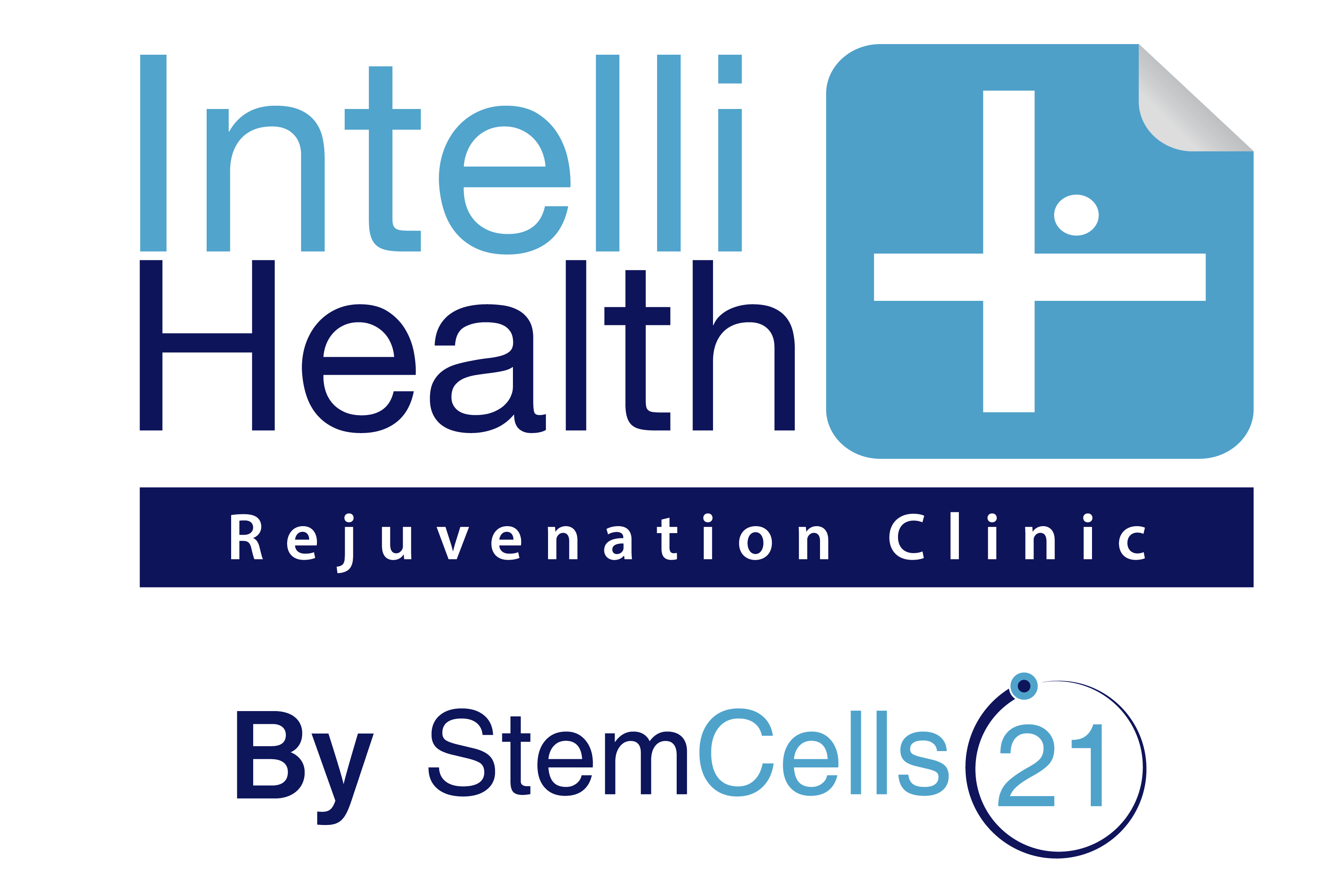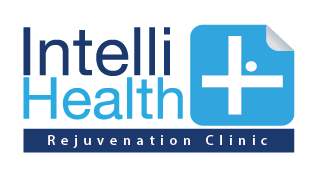Resting 12-Lead ECG
Resting 12-Lead ECG
Health Check-Up at IntelliHealthPlus Clinic, Bangkok
Resting 12-Lead ECG is a non-invasive diagnostic test that measures the electrical activity of the heart. It records the heart’s rhythm, rate, and any abnormal electrical conduction patterns that may indicate a heart condition. The test involves placing electrodes on the chest, arms, and legs, which are connected to an ECG machine that records the electrical signals produced by the heart.
A resting 12-lead ECG is a quick and painless test that can help diagnose a variety of heart conditions, such as arrhythmias, heart attacks, and heart failure. It can also be used to monitor the effectiveness of certain heart medications or to evaluate the heart before a surgical procedure.
What is involved in a Resting 12-Lead ECG?
A Resting 12-Lead ECG (Electrocardiogram) is a non-invasive diagnostic test that measures the electrical activity of the heart. It provides valuable information about the heart’s rhythm, rate, and overall electrical conduction. The test involves placing electrodes on specific locations on the chest, arms, and legs to record the electrical signals produced by the heart.
During a Resting 12-Lead ECG, the patient lies comfortably on an examination table. The technician attaches adhesive electrodes to specific areas of the patient’s chest, arms, and legs. The electrodes are connected to a machine that records the electrical impulses generated by the heart. The machine records the electrical activity from 12 different perspectives or “leads,” which provide a comprehensive view of the heart’s electrical function.

The test typically takes a few minutes to complete, and the patient is required to lie still and remain calm during the recording. The electrical signals captured by the electrodes are displayed as a graph or waveform on a monitor or paper printout. A healthcare professional, such as a cardiologist or an electrocardiography technician, interprets the recorded ECG and assesses the heart’s health and function based on the findings. The test can help diagnose various heart conditions, such as arrhythmias, conduction abnormalities, ischemia, and structural abnormalities.
Overall, a Resting 12-Lead ECG is a simple and painless procedure that provides valuable information about the heart’s electrical activity. It helps healthcare professionals assess the overall cardiac health and identify any abnormalities that may require further investigation or treatment. The test is commonly used in routine check-ups, assessment of heart-related symptoms, pre-operative evaluations, and monitoring the effects of medications or interventions on the heart.
Benefits of a Resting 12-Lead ECG Test?
The purpose of a Resting 12-Lead ECG (Electrocardiogram) is to evaluate the electrical activity of the heart at rest and assess its overall function. It is a commonly performed diagnostic test that helps healthcare professionals diagnose and monitor various heart conditions. The main Benefits of a Resting 12-Lead ECG include:
1. Assessing heart rhythm and rate:
The ECG provides information about the regularity and speed of the heart’s electrical impulses. It helps identify abnormal heart rhythms, such as atrial fibrillation, bradycardia (slow heart rate), or tachycardia (fast heart rate). Monitoring heart rhythm is crucial in evaluating arrhythmias and determining the appropriate treatment approach.
2. Detecting conduction abnormalities:
The ECG helps evaluate the conduction system of the heart, which is responsible for coordinating the electrical signals and ensuring proper contraction of the heart chambers. It can detect conduction disorders such as bundle branch blocks, atrioventricular (AV) blocks, and other abnormalities that affect the transmission of electrical impulses within the heart.
3. Assessing cardiac ischemia and injury:
Changes in the ECG pattern can indicate insufficient blood flow to the heart muscle, known as cardiac ischemia. These changes may be present during rest or may become apparent during stress testing. The ECG can also identify signs of previous heart damage, such as ST-segment elevation or Q-waves, which may suggest a previous heart attack or injury.
By providing a snapshot of the heart’s electrical activity, a Resting 12-Lead ECG helps healthcare professionals make diagnostic and treatment decisions. It is a valuable tool in the assessment of patients with chest pain, palpitations, shortness of breath, or other symptoms suggestive of heart conditions. Additionally, it is used in routine check-ups, pre-operative evaluations, and monitoring the effects of medications or interventions on the heart.
Here are some examples of individuals who may benefit from a Resting 12-lead ECG:
Several individuals may benefit from a Resting 12-Lead ECG (Electrocardiogram) to assess their heart’s electrical activity and overall function. Here are some examples:
Individuals experiencing symptoms such as chest pain, palpitations, shortness of breath, or dizziness may benefit from a Resting 12-Lead ECG. It helps evaluate the heart’s rhythm, identify any abnormalities, and provide insights into the cause of the symptoms.
Individuals with pre-existing heart conditions, such as coronary artery disease, heart failure, or arrhythmias, may undergo periodic Resting 12-Lead ECGs to monitor the progression of their condition, assess treatment efficacy, and detect any new abnormalities.
People with risk factors for heart disease, such as hypertension, diabetes, smoking, obesity, or a family history of heart disease, may undergo Resting 12-Lead ECGs as part of routine cardiovascular assessments. It helps identify early signs of heart abnormalities and guide preventive measures.
Prior to certain surgeries or medical procedures, a Resting 12-Lead ECG may be performed to evaluate the heart’s function and ensure it can withstand the stress of the procedure. It helps identify any underlying heart conditions that need to be managed or considered during the planning process.
Resting 12-Lead ECGs are sometimes recommended for athletes or individuals engaging in intense physical activities to screen for underlying heart conditions, such as structural abnormalities or arrhythmias, that may pose a risk during exercise.
As age increases, the risk of heart-related conditions also rises. Resting 12-Lead ECGs can be beneficial for older adults to assess their heart health, detect any age-related changes or abnormalities, and guide appropriate management.
Signs you may need a Resting 12-Lead ECG:
The decision to undergo a Resting 12-Lead ECG (Electrocardiogram) is typically based on symptoms or clinical indications that may suggest underlying heart conditions. While a healthcare professional is best suited to determine the need for an ECG, here are some symptoms that may warrant consideration:
Persistent or recurring chest pain, pressure, tightness, or discomfort may be indicative of angina or other heart-related conditions. An ECG can help evaluate the heart’s electrical activity during episodes of chest pain and identify any abnormalities.
Sensations of rapid, irregular, or pounding heartbeat, along with a feeling of the heart “skipping” beats, may suggest arrhythmias or abnormal heart rhythms. An ECG can assess the heart’s rhythm and identify any irregularities.
Difficulty breathing or feeling breathless, particularly during exertion or at rest, may be a sign of heart failure, coronary artery disease, or other cardiac conditions. An ECG can provide insights into the heart’s electrical function and help identify underlying issues.
Episodes of dizziness, lightheadedness, or fainting (syncope) may indicate potential heart rhythm abnormalities or reduced blood flow to the brain. An ECG can help evaluate the heart’s electrical conduction and identify any abnormalities that may contribute to these symptoms.
Persistent and unexplained fatigue, weakness, or a decline in exercise tolerance may be associated with underlying heart conditions. An ECG can provide information on the heart’s rhythm, detect signs of inadequate blood supply to the heart muscle, or identify other cardiac abnormalities.
Individuals with known risk factors for heart disease, such as hypertension, diabetes, smoking, obesity, or a family history of heart conditions, may benefit from periodic ECG screenings to detect early signs of heart abnormalities, even in the absence of specific symptoms.
It’s important to remember that the presence of these symptoms does not necessarily indicate a need for an ECG, but they may warrant further evaluation by a healthcare professional. They will consider the symptoms, medical history, risk factors, and perform a thorough assessment to determine if a Resting 12-Lead ECG or other diagnostic tests are necessary.
How often should you have a resting 12-lead ECG?
Generally, a person may need to undergo an ECG if they are experiencing symptoms such as chest pain, shortness of breath, dizziness, or fainting. Individuals with a history of heart disease, high blood pressure, diabetes, or other conditions that may affect heart health may also need periodic ECG testing as part of their routine healthcare.
How long does a resting 12-lead ECG take?
A resting 12-lead ECG is a quick and non-invasive test that typically takes around 5-10 minutes to perform. However, additional time may be needed for preparation and electrode placement. The results can be available immediately or within a few hours, depending on the healthcare provider or facility conducting the test.
who should get a resting 12-lead ECG?
It is typically recommended for individuals who are at risk for heart disease or who are experiencing symptoms such as chest pain, shortness of breath, or palpitations. It may also be recommended as part of a routine physical exam for individuals who have a family history of heart disease or other risk factors.
Frequently Asked Questions:
What should I wear for a resting 12-lead ECG?
Is a resting 12-lead ECG painful?
Can a resting 12-lead ECG diagnose all heart problems?
What can interfere with the accuracy of a resting 12-lead ECG?
Why Us..
Health Check-Ups at IntelliHealthPlus Clinic By StemCells21
FREE CONSULTATION
Fast Track
1-2 Days Test Results
Health Check-ups at IntelliHealth+
At IntelliHealthplus Clinic, we believe in the importance of proactive healthcare and empowering our patients to take control of their health.
Our health check-up package provides valuable insights into your health status, and our team of experienced physicians will work with you to develop a personalized plan to optimize your health and well-being.
In our practice we apply evidence-based methods that have been practiced and refined for over 10 years in our operations, offering advanced techniques for treating various conditions.
If you would like to find out more or speak to one of our specialist contact us today to book your FREE consultation.
Book a FREE Consultation Now
IH+ Contact Form
Contact our international team of medical professionals with language services available in English, Thai, Arabic, Chinese, Spanish, and Russian.
Please indicate your preferred language and we will do our best to accommodate your request.


